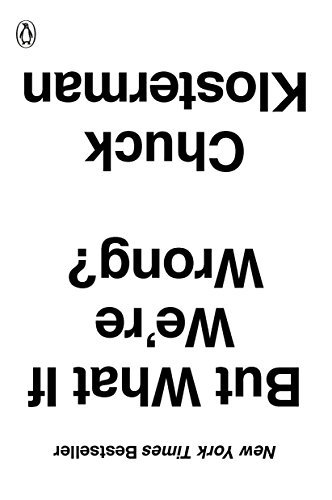But What If We're Wrong?: Thinking About the Present As If It Were the Past
This is another great book in a series that I seem to be on at the moment. Exploring all the ways we think that we are right, that we have the answer, that our perspective is true... only to be wrong.
Klosterman visualizes the contemporary world as it will appear to those who'll perceive it as the distant past. Kinetically slingshotting through a broad spectrum of objective and subjective problems, But What If We’re Wrong? is built on interviews with a variety of creative thinkers—George Saunders, David Byrne, Jonathan Lethem, Kathryn Schulz, Neil deGrasse Tyson, Brian Greene, Junot Díaz, Amanda Petrusich, Ryan Adams, Nick Bostrom, Dan Carlin, and Richard Linklater, among others—interwoven with the type of high-wire humor and nontraditional analysis only Klosterman would dare to attempt. It’s a seemingly impossible achievement: a book about the things we cannot know, explained as if we did. It’s about how we live now, once “now” has become “then.”
Some of my Kindle notes include
It’s impossible to understand the world of today until today has become tomorrow.
People will always look backward in an attempt to re-remember what they want to be true,
ideas appear laughable in retrospect is that people involuntarily assume that whatever we believe and prioritize now will continue to be believed and prioritized later, even though that almost never happens. It’s a mistake that never stops being made.
Thomas Kuhn’s 1962 masterwork The Structure of Scientific Revolutions. Kuhn’s take was that science does not advance through minor steps, but through major ones—basically something becomes truly popular when it becomes interesting to those who don’t particularly care.
Storytelling’s relationship to history is a little like interviewing’s relationship to journalism: a flawed process without a better alternative.
We spend our lives learning many things, only to discover (again and again) that most of what we’ve learned is either wrong or irrelevant.


